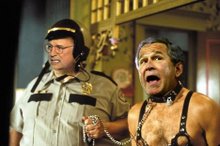skip to main |
skip to sidebar
Covert U.S. actions during Iran-Iraq WarA review of thousands of declassified government documents and interviews with former U.S. policymakers shows that U.S. intelligence and logistical support played a crucial role in arming Iraq. The administrations of Ronald Reagan and George H.W. Bush authorized the sale to Iraq of numerous dual use items that had both military and civilian applications, including poisonous chemicals and deadly biological viruses, such as anthrax and bubonic plague.
Opinions differ among Middle East experts and former government officials about the pre-Iraqi tilt, and whether Washington could have done more to stop the flow to Baghdad of technology for building weapons of mass destruction. "Fundamentally, the policy was justified," argues David Newton, a former U.S. ambassador to Baghdad, who runs an anti-Hussein radio station in Prague. "We were concerned that Iraq should not lose the war with Iran, because that would have threatened Saudi Arabia and the Persian Gulf. Our long-term hope was that Hussein's government would become less repressive and more responsible."
Although U.S. arms manufacturers were not as deeply involved as German or British companies in selling weaponry to Iraq, the Reagan administration effectively turned a blind eye to the export of "dual use" items such as chemical precursors and steel tubes that can have military and civilian applications. According to several former officials, the State and Commerce departments promoted trade in such items as a way to boost U.S. exports and acquire political leverage over Hussein.
"Everybody was wrong in their assessment of Saddam," said Joe Wilson, Glaspie's former deputy at the U.S. embassy in Baghdad, and the last U.S. official to meet with Hussein. "Everybody in the Arab world told us that the best way to deal with Saddam was to develop a set of economic and commercial relationships that would have the effect of moderating his behavior. History will demonstrate that this was a miscalculation."[59]
According to reports of the U.S. Senate's Committee on Banking, Housing and Urban Affairs, the U.S., under the successive presidential administrations sold materials including anthrax, VX nerve gas, West Nile fever and botulism to Iraq right up until March 1992. The chairman of the Senate committee, Don Riegle, said: "The executive branch of our government approved 771 different export licences for sale of dual-use technology to Iraq. I think its a devastating record."[60]
The U.S. also claimed to have provided critical battle planning assistance at a time when U.S. intelligence agencies knew that Iraqi commanders would employ chemical weapons in waging the war, according to senior military officers with direct knowledge of the program. The U.S. claimed to have carried out the covert program at a time when Secretary of State George P. Shultz, Secretary of Defense Frank C. Carlucci and National Security Adviser General Colin L. Powell were publicly condemning Iraq for its use of poison gas, especially after Iraq attacked Kurdish villagers in Halabja in March 1988. U.S. officials publicly condemned Iraq's employment of mustard gas, sarin, VX and other poisonous agents, but sixty Defense Intelligence Agency officers were secretly providing detailed information on Iranian deployments, tactical planning for battles, plans for airstrikes and bomb-damage assessments for Iraq.


No comments:
Post a Comment